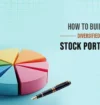Why the Stock Market is Falling: Investors Lose ₹10 Lakh Crore as Sensex Crashes Over 1,200 Points
The stock market crash has left investors worried as the Sensex plunged over 1,200 points, wiping out nearly ₹10 lakh crore in market value. The sudden market crash has shaken investor confidence, leading to a sharp sell-off in Indian stocks.
Several factors have contributed to this stock market crash, including global economic uncertainty, rising interest rates, geopolitical tensions, and weak corporate earnings. Investors are now wondering whether this is just a short-term correction or a sign of deeper economic trouble.
In this article, we will explore the reasons behind the market crash, its impact on investors, and what the future holds for Indian stocks.
Why is the Stock Market Crashing?
Global Economic Uncertainty
The ongoing economic slowdown in the US and Europe has impacted global stock markets, including India. Uncertainty over inflation, recession fears, and interest rate hikes has caused foreign investors to pull out money from Indian stocks, leading to a market crash.
Rising Interest Rates
The Reserve Bank of India (RBI) and central banks around the world have been increasing interest rates to control inflation. Higher interest rates make borrowing more expensive, affecting corporate earnings and reducing liquidity in the market. This has contributed to the stock market crash, with investors moving funds to safer assets like bonds.
Weak Corporate Earnings
Recent quarterly results from major Indian stocks have disappointed investors. Many companies reported lower-than-expected profits, leading to a sharp sell-off in their shares. Sectors like IT, banking, and real estate have been hit the hardest in this market crash.
Foreign Institutional Investors (FII) Selling
Foreign investors have been aggressively selling Indian stocks, further worsening the stock market crash. The withdrawal of FIIs has led to lower market liquidity, amplifying the fall in Sensex and Nifty.
Geopolitical Tensions
Ongoing geopolitical issues, including wars, trade restrictions, and global conflicts, have increased market volatility. Uncertainty in global markets often leads to panic selling, which has contributed to the Indian stock market crash.
How Much Have Investors Lost?
The recent stock market crash has wiped out over ₹10 lakh crore in investor wealth. Many retail and institutional investors have seen significant losses in their portfolios as Indian stocks continue to decline.
Here’s how the market crash has impacted different sectors:
| Sector | Impact | Stock Performance |
| IT & Technology | Heavy losses | Major stocks down 5-7% |
| Banking & Financial Services | Declining | Weak earnings reports |
| Real Estate | Negative sentiment | Property stocks under pressure |
| Automobile | Moderate decline | Impact of rising costs |
| FMCG & Pharma | Relatively stable | Defensive stocks performing better |
What Should Investors Do Now?
Stay Calm and Avoid Panic Selling
A stock market crash can be overwhelming, but panic selling often leads to more losses. Investors should avoid making impulsive decisions and instead focus on long-term investment strategies.
Diversify Your Portfolio
Diversification is key during a market crash. Investors should consider investing in a mix of stocks, bonds, gold, and other asset classes to reduce risk.
Look for Buying Opportunities
A market crash can also present good buying opportunities. Many fundamentally strong Indian stocks are now available at lower valuations, making this a good time for long-term investors to accumulate quality stocks.
Monitor Global and Domestic Factors
Keeping track of interest rate decisions, inflation data, and global economic conditions can help investors make informed decisions. Markets tend to recover once uncertainty reduces.
Invest in Defensive Stocks
Sectors like FMCG, healthcare, and utilities tend to perform better during market crashes. Allocating some funds to defensive stocks can help protect your portfolio.
Will the Market Recover?
While the current stock market crash has created panic, markets are cyclical, and downturns are usually followed by recoveries. Historically, Indian stocks have bounced back after major crashes, driven by economic growth and strong fundamentals.
Here’s what could help the market recover:
- Stabilization of global economies
- Better-than-expected corporate earnings
- Reduction in interest rates by central banks
- Increased domestic and foreign investor confidence
Experts believe that while the market crash may continue in the short term, long-term investors should remain patient, as Indian stocks have strong growth potential.
Conclusion
The stock market crash has caused significant losses, with the Sensex falling over 1,200 points and investors losing ₹10 lakh crore. Factors like global economic uncertainty, rising interest rates, weak earnings, and FII selling have contributed to this market crash.
However, history shows that Indian stocks tend to recover from downturns. Investors should stay calm, avoid panic selling, and look for long-term opportunities. The market may remain volatile for now, but those who stay invested in strong stocks are likely to benefit when conditions improve.
Frequently Asked Questions (FAQs)
1. Why is the stock market crashing today?
The stock market crash is due to factors like global economic slowdown, rising interest rates, weak corporate earnings, and FII outflows. Panic selling has further worsened the decline in Indian stocks.
2. How much money have investors lost in this market crash?
Investors have lost nearly ₹10 lakh crore in market capitalization as the Sensex dropped over 1,200 points. Major sectors like IT, banking, and real estate have been heavily impacted.
3. When will the Indian stock market recover?
Market recovery depends on global economic stability, interest rate decisions, and investor confidence. While short-term volatility may continue, experts believe Indian stocks will recover over time.



